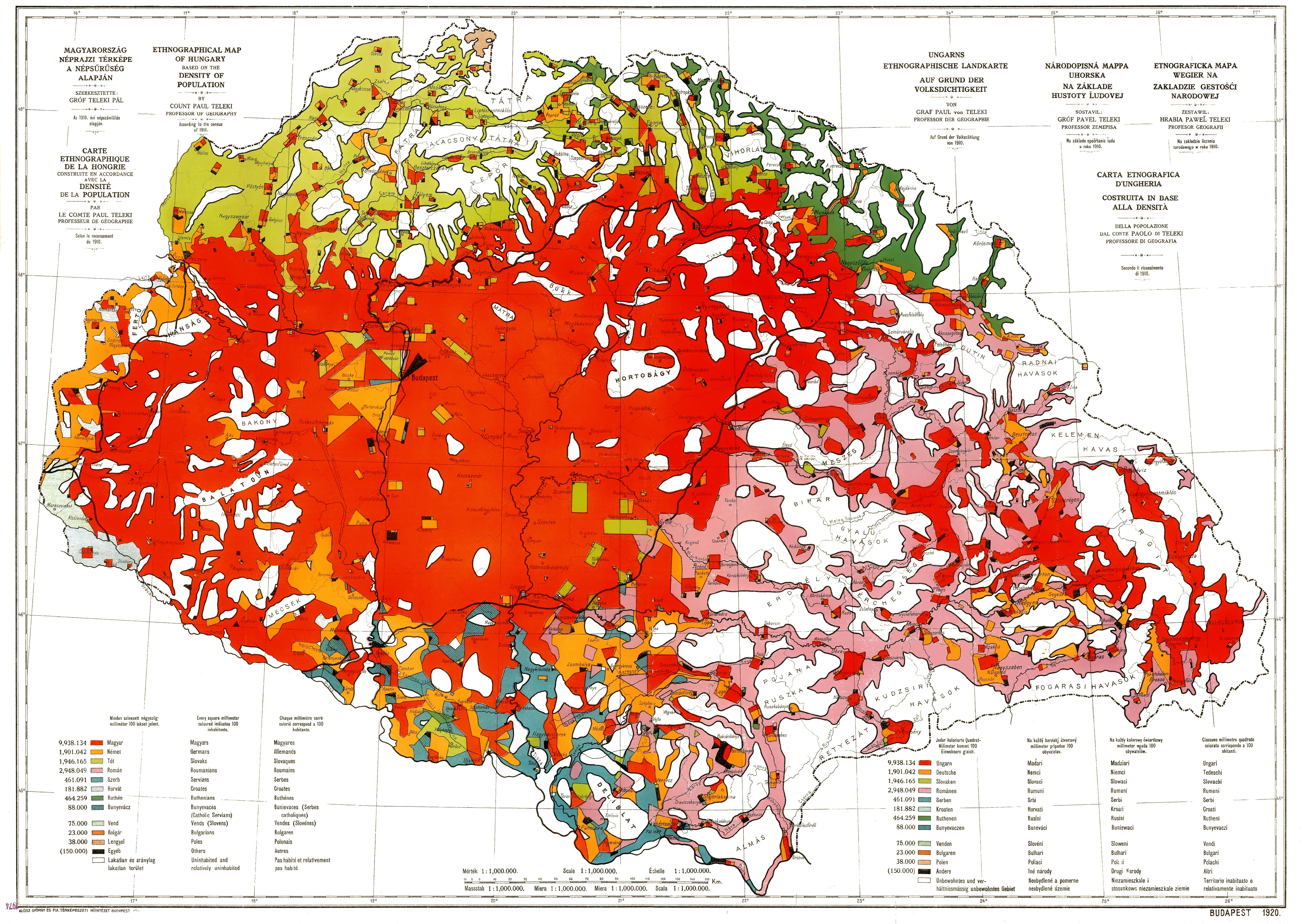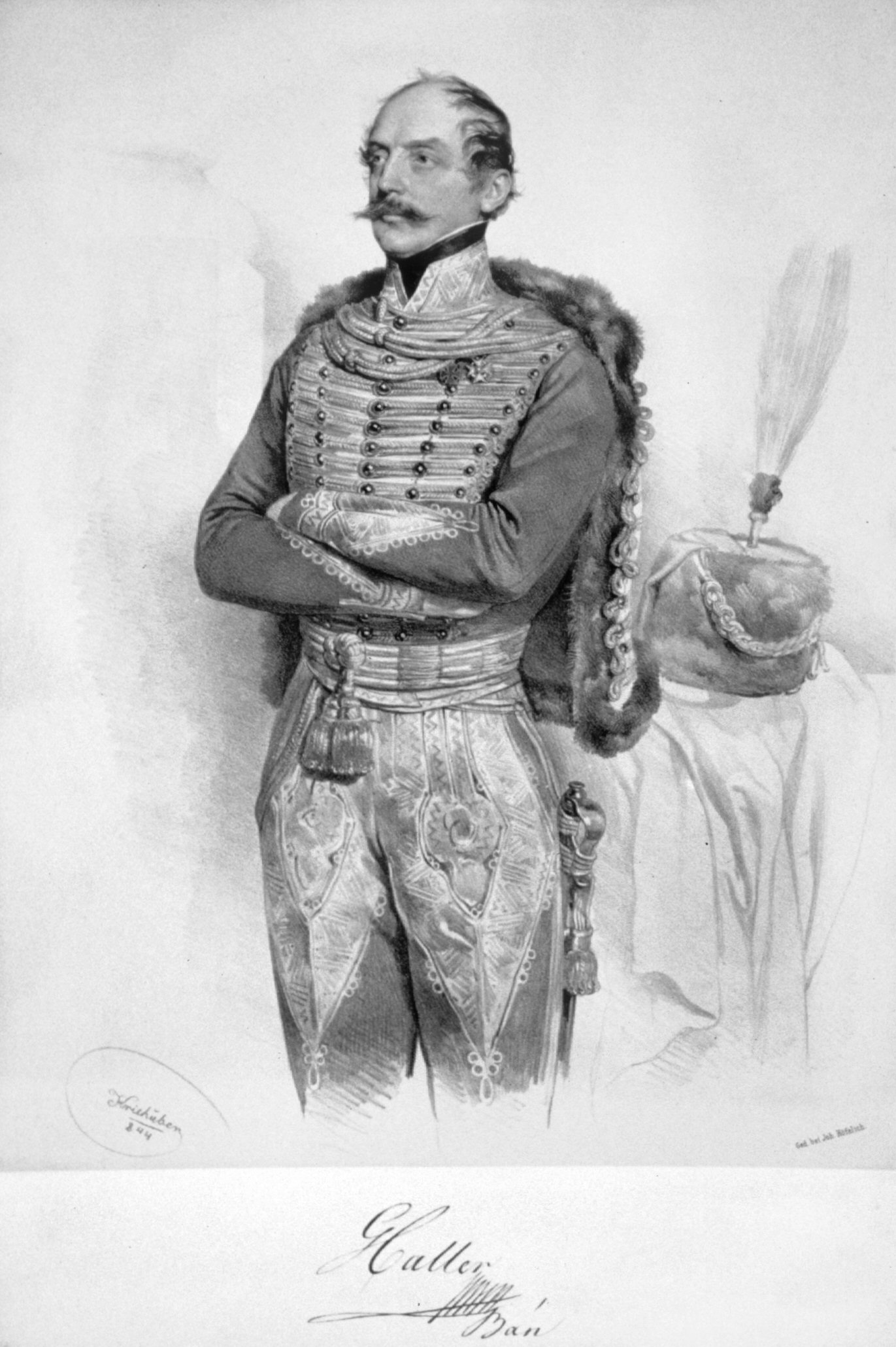|
People's Party (1841-1918)
The People's Party ( hr, Narodna stranka) was a political party in the Habsburg Kingdom of Croatia and the Kingdom of Croatia-Slavonia. It was founded in 1841 based on Croatian Illyrian movement. Because the movement did not distinguish Croats from other South Slavs and instead called them all ''Illyrians'', the party was named the Illyrian Party (''Ilirska stranka'') when it was formed in late 1841, and it participated in the councils of the Varaždin County and the Bjelovar-Križevci County. It was one of the two parties in the 1843 session of the Croatian Parliament. Some of its champions from this time included Janko Drašković, Ivan Kukuljević Sakcinski, Josip Juraj Strossmayer and Ivan Mažuranić. July victims The July victims ( hr, Srpanjske žrtve) were members of the Croatian People's Party who fell victim to a crackdown by the Austrian Imperial Army on July 29, 1845. With the restoration of the Zagreb County, local elections were held around the Croatian capital ... [...More Info...] [...Related Items...] OR: [Wikipedia] [Google] [Baidu] |
Ljudevit Gaj
Ljudevit Gaj (; born Ludwig Gay; hu, Gáj Lajos; 8 August 1809 – 20 April 1872) was a Croatian Linguistics, linguist, politician, journalist and writer. He was one of the central figures of the pan-Slavist Illyrian movement. Biography Origin He was born in Krapina (then in the Varaždin County (former), Varaždin County, Kingdom of Croatia (Habsburg), Kingdom of Croatia, Austrian Empire) on August 8, 1809. His father Johann Gay was a German immigrant from History of Hungary 1700–1919, Hungarian Slovakia, and his mother was Juliana ' Schmidt, the daughter of a German immigrant arriving in the 1770s. The Gays were originally of Burgundy, Burgundian Huguenot origin. They arrived in Batizovce in present-day Slovakia in 16th or 17th century. Thence they became Serfdom, serfs of Mariassy de Markusfalva and Batizfalva families in 18th century. As there were a lot of ethnic Germans in that area, the Gays were soon Germanised. Ljudevit's father originates from a branch that moved ... [...More Info...] [...Related Items...] OR: [Wikipedia] [Google] [Baidu] |
Magyarization
Magyarization ( , also ''Hungarization'', ''Hungarianization''; hu, magyarosítás), after "Magyar"—the Hungarian autonym—was an assimilation or acculturation process by which non-Hungarian nationals living in Austro-Hungarian Transleithania adopted the Hungarian national identity and language in the period between the Compromise of 1867 and Austria-Hungary's dissolution in 1918. Magyarization occurred both voluntarily and as a result of social pressure, and was mandated in certain respects by specific government policies. Before the World War I, only three European countries declared ethnic minority rights, and enacted minority-protecting laws: the first was Hungary (1849 and 1868), the second was Austria (1867), and the third was Belgium (1898). In contrast, the legal systems of other pre-WW1 era European countries did not allow the use of European minority languages in primary schools, in cultural institutions, in offices of public administration and at the legal courts ... [...More Info...] [...Related Items...] OR: [Wikipedia] [Google] [Baidu] |
People's Party (Kingdom Of Dalmatia)
People's Party ( hr, Narodna stranka) was a political party in the Kingdom of Dalmatia. It was founded in 1861 after the failure of Bach's absolutism, as a branch of the People's Party in Kingdom of Croatia-Slavonia. Its members were known as ''narodnjaci'', ''aneksionisti'' or ''puntari''. Its political goal was uniting Dalmatia with Croatia and Slavonia, stemming from their ideological origins in the Illyrian movement. It also gathered prominent Dalmatian Italians as well as Dalmatian Serbs. However, a Serb faction splintered in 1878, led by Stjepan Mitrov Ljubiša, into the Serb People's Party. From 1887 People's Party was renamed People's Croatian Party (), as a result of an internal compromise between the conservative majority led by Miho Klaić and a radical minority led by Mihovil Pavlinović and Juraj Biankini. It united with the Party of Rights in 1905 into the "Croatian Party". Notable members *Gajo Bulat *Miho Klaić *Lovro Monti *Vid Morpurgo *Natko Nodilo *Mihov ... [...More Info...] [...Related Items...] OR: [Wikipedia] [Google] [Baidu] |
Kingdom Of Dalmatia
The Kingdom of Dalmatia ( hr, Kraljevina Dalmacija; german: Königreich Dalmatien; it, Regno di Dalmazia) was a crown land of the Austrian Empire (1815–1867) and the Cisleithanian half of Austria-Hungary (1867–1918). It encompassed the entirety of the region of Dalmatia, with its capital at Zadar. History The Habsburg monarchy had annexed the lands of Dalmatia after the Napoleonic War of the First Coalition: when Napoleon Bonaparte launched his Italian Campaign into the Habsburg duchies of Milan and Mantua in 1796, culminating in the Siege of Mantua, he compelled Emperor Francis II to make peace. In 1797 the Treaty of Campo Formio was signed, whereby the Habsburg emperor renounced possession of the Austrian Netherlands and officially recognized the independence of the Italian Cisalpine Republic. In turn, Napoleon ceded to him the possessions of the Republic of Venice, including the Dalmatian coast (Venetian Dalmatia) and the Bay of Kotor (Venetian Albania). ''La Sereniss ... [...More Info...] [...Related Items...] OR: [Wikipedia] [Google] [Baidu] |
Latin Language
Latin (, or , ) is a classical language belonging to the Italic languages, Italic branch of the Indo-European languages. Latin was originally a dialect spoken in the lower Tiber area (then known as Latium) around present-day Rome, but through the power of the Roman Republic it became the dominant language in the Italy (geographical region), Italian region and subsequently throughout the Roman Empire. Even after the Fall of the Western Roman Empire, fall of Western Rome, Latin remained the common language of international communication, science, scholarship and academia in Europe until well into the 18th century, when other regional vernaculars (including its own descendants, the Romance languages) supplanted it in common academic and political usage, and it eventually became a dead language in the modern linguistic definition. Latin is a fusional language, highly inflected language, with three distinct grammatical gender, genders (masculine, feminine, and neuter), six or seven ... [...More Info...] [...Related Items...] OR: [Wikipedia] [Google] [Baidu] |
Croatian Language
Croatian (; ' ) is the standardized variety of the Serbo-Croatian pluricentric language used by Croats, principally in Croatia, Bosnia and Herzegovina, the Serbian province of Vojvodina, and other neighboring countries. It is the official and literary standard of Croatia and one of the official languages of the European Union. Croatian is also one of the official languages of Bosnia and Herzegovina and a recognized minority language in Serbia and neighboring countries. Standard Croatian is based on the most widespread dialect of Serbo-Croatian, Shtokavian, more specifically on Eastern Herzegovinian, which is also the basis of Standard Serbian, Bosnian, and Montenegrin. In the mid-18th century, the first attempts to provide a Croatian literary standard began on the basis of the Neo-Shtokavian dialect that served as a supraregional ''lingua franca'' pushing back regional Chakavian, Kajkavian, and Shtokavian vernaculars. The decisive role was played by Croatian Vukovians, ... [...More Info...] [...Related Items...] OR: [Wikipedia] [Google] [Baidu] |
Croatian-Hungarian Party
Croatian-Hungarian Party ( hr, Hrvatsko-ugarska stranka) was the name of a 19th-century political party in the Habsburg Kingdom of Croatia and the Kingdom of Croatia-Slavonia which advocated closer ties between Croatia and Hungary. It was officially named in 1841 when it participated in the council of the Varaždin County. It was one of the two parties in the 1843 session of the Croatian Parliament. It temporarily ceased to function in 1849, following the Revolutions of 1848; when it was reconstituted in 1860, it was named the Unionist Party (), and entered the Parliament in 1861. It was also known as the National Constitutional Party (). Because they advocated Magyarization policies, their political adversaries gave them a well-known nickname of . Several 19th-century Ministers of Croatian Affairs of Hungary and Bans of Croatia were members of the party. See also * July victims References Sources * (Wikisource Wikisource is an online digital library of free-content text ... [...More Info...] [...Related Items...] OR: [Wikipedia] [Google] [Baidu] |
Juraj Haulik
Juraj Haulik de Váralya ( sk, Juraj Haulík Váralyai, hu, Haulík Váralyai György; 20 April 1788 – 11 May 1869) was a Croatian cardinal in the Roman Catholic Church of Slovak ethnicity and the first archbishop of Zagreb. He was also acting ban of Croatia for two separate terms. Life He studied theology and philosophy in Trnava, Esztergom and Vienna. After the death of bishop Aleksandar Alagović in 1837, Haulik was proclaimed bishop. In 1840 he began his first term as acting ban of Croatia after the death of ban Franjo Vlašić. He is credited for introducing the Croatian language into schools and workplaces, as well as forming the Matica hrvatska in 1842. He helped the organization of Maksimir park in Zagreb. He was succeeded as ban by the Hungarian Franz Haller. Haller was brought in to carry on Magyarization in Croatia, which included the banning of the then Croatian banner name: Illyrians. A protest by the Croatian People's Party in 1845 was put out violently by ... [...More Info...] [...Related Items...] OR: [Wikipedia] [Google] [Baidu] |
Franz Haller
Ferenc Haller, ''count Haller von Hallerkeö'' (24 March 1796 – 5 March 1875) was a Hungarian politician. He served as ban of Croatia-Slavonia between 1842 and 1845 during the Croatian national revival and the Illyrian movement in the 1830s and 1840s. Haller was born in Kerelőszentpál, Transylvania, as a member of the Hungarian-Transylvanian branch of the Haller von Hallerstein family. He was promoted by emperor Franz Joseph as ban on 16 June 1842 and was later promoted to lieutenant general. He took office on 18 October. Haller was brought in to carry on Magyarization in Croatia. In 1843, the use of the Illyrian name was banned. In large part due to the July victims incident, in which thirteen protesters were killed in Zagreb, Haller resigned his post and continued his military career in the Austrian Empire. Bishop Juraj Haulik became ban soon after. In 1845 Haller donated 500 forint for building the Croatian National Theatre in Zagreb Zagreb ( , , , ) is the capita ... [...More Info...] [...Related Items...] OR: [Wikipedia] [Google] [Baidu] |
Ban (title)
Ban () was a noble title used in several states in Central and Southeastern Europe between the 7th century and the 20th century. The most common examples have been found in Croatia. Sources The first known mention of the title ''ban'' is in the 10th century by Constantine VII Porphyrogenitus, in the work '' De Administrando Imperio'', in the 30th and 31st chapter "Story of the province of Dalmatia" and "Of the Croats and of the country they now dwell in", dedicated to the Croats and the Croatian organisation of their medieval state. In the 30th chapter, describing in Byzantine Greek, how the Croatian state was divided into eleven (; župas), the ban (), (rules over) (Krbava), ( Lika) (and) (Gacka). In the 31st chapter, describing the military and naval force of Croatia, " Miroslav, who ruled for four years, was killed by the () (, i.e. Pribina)", and after that followed a temporary decrease in the military force of the Croatian Kingdom. In 1029, a Latin charter was publ ... [...More Info...] [...Related Items...] OR: [Wikipedia] [Google] [Baidu] |
Croatia
, image_flag = Flag of Croatia.svg , image_coat = Coat of arms of Croatia.svg , anthem = "Lijepa naša domovino"("Our Beautiful Homeland") , image_map = , map_caption = , capital = Zagreb , coordinates = , largest_city = capital , official_languages = Croatian , languages_type = Writing system , languages = Latin , ethnic_groups = , ethnic_groups_year = 2021 , religion = , religion_year = 2021 , demonym = , government_type = Unitary parliamentary republic , leader_title1 = President , leader_name1 = Zoran Milanović , leader_title2 = Prime Minister , leader_name2 = Andrej Plenković , leader_title3 = Speaker of Parliament , leader_name3 = Gordan Jandroković , legislature = Sabor , sovereignty_type ... [...More Info...] [...Related Items...] OR: [Wikipedia] [Google] [Baidu] |






